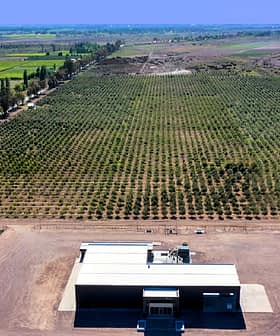Olive growers, oil producers and other agriculturalists in Spain are set to renew protests throughout the second half of July, according to a joint statement released by four of the country’s most prominent agricultural organizations.
“We have resumed the mobilization of protests, and they will restart where they all began, here in the province of Jaén,” Juan Luis Ávila, the general secretary of the Coordinator of Agriculture and Livestock Organizations (COAG) of Jaén, said at a press conference.
The Association of Young Farmers (Asaja), the COAG, the Union of Small Farmers and Ranchers (UPA) and the Agrifood Cooperatives of Jaén all said they would consult with local authorities to make sure proper safety and sanitary protocols are followed throughout the protests to prevent the spread of Covid-19.
While the number of active cases in the country has dropped by more than 40 percent since the peak of the pandemic a few months ago, authorities remain wary of a second spike in infections.
Members of the olive oil sector will be joining the protests to demand mandatory self-regulation measures for the 2020 harvest, the quick adoption of changes to the country’s so-called Food Chain Law and the removal of agricultural goods from the list of American tariffs on European Union imports.
Producers argue that self-regulation will work more effectively than the European Union’s own private storage programs, allowing cooperatives and companies to remove olive oil from the market to balance its supply with the prevailing demand.
Members of the sector are also urging Spain’s Ministry of Agriculture, Fisheries and Food to quickly ratify and implement proposed changes to the Food Chain Law, which would crack down on uncompetitive behaviors from retailers and work to ensure that producers are being paid fairly for their olive oils.
Growers and producers are also working to increase the pressure on Brussels to negotiate with the United States to have table olives and olive oil removed from the list of American tariffs. The two products were targeted by the U.S. after the World Trade Organization ruled that the E.U. had illegally subsidized aircraft manufacturer Airbus.
“These measures that our organizations and cooperatives require must be quickly put in place because they are three very fundamental pillars of our business that we understand can serve to reverse our current situation,” Ávila concluded.









